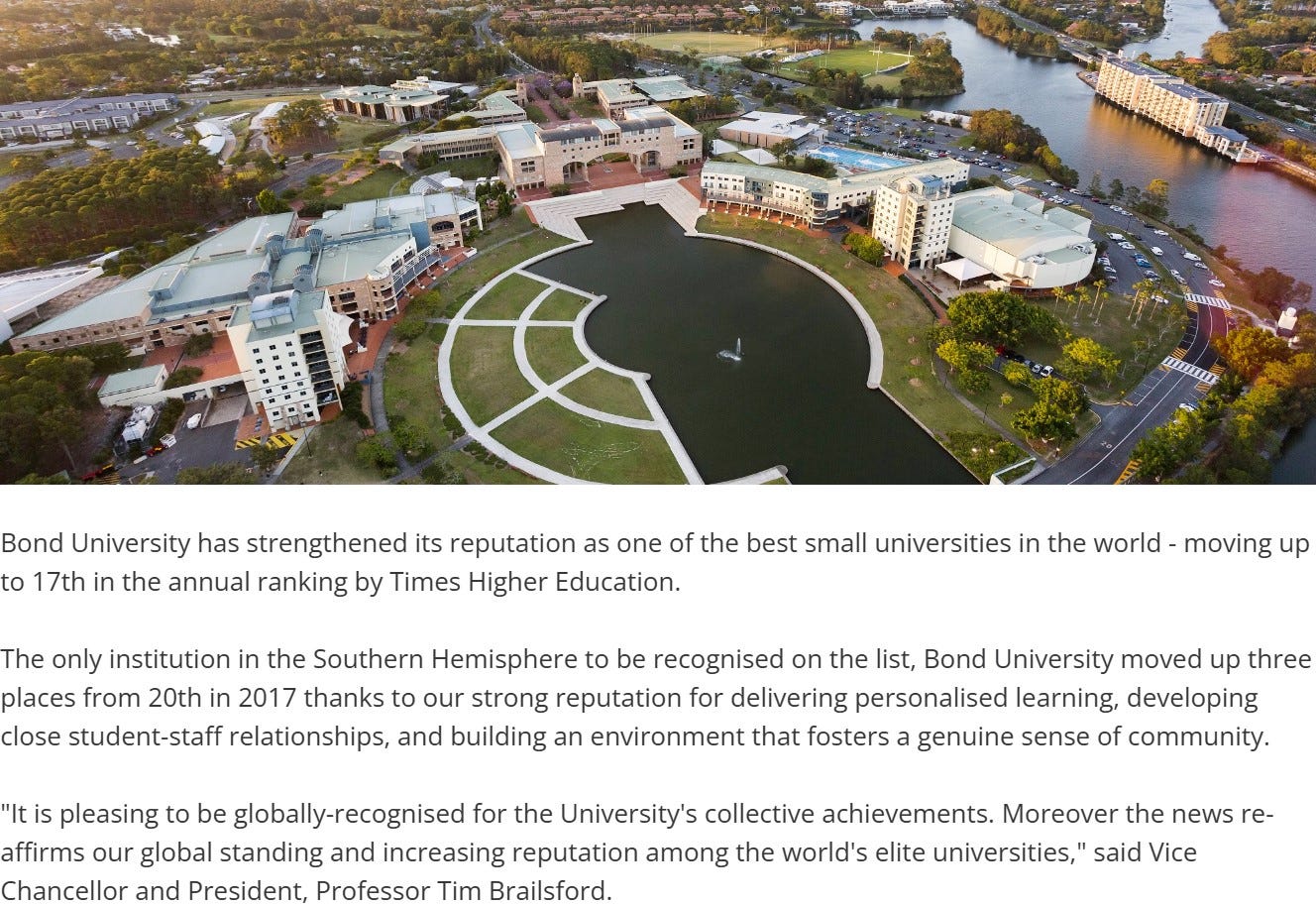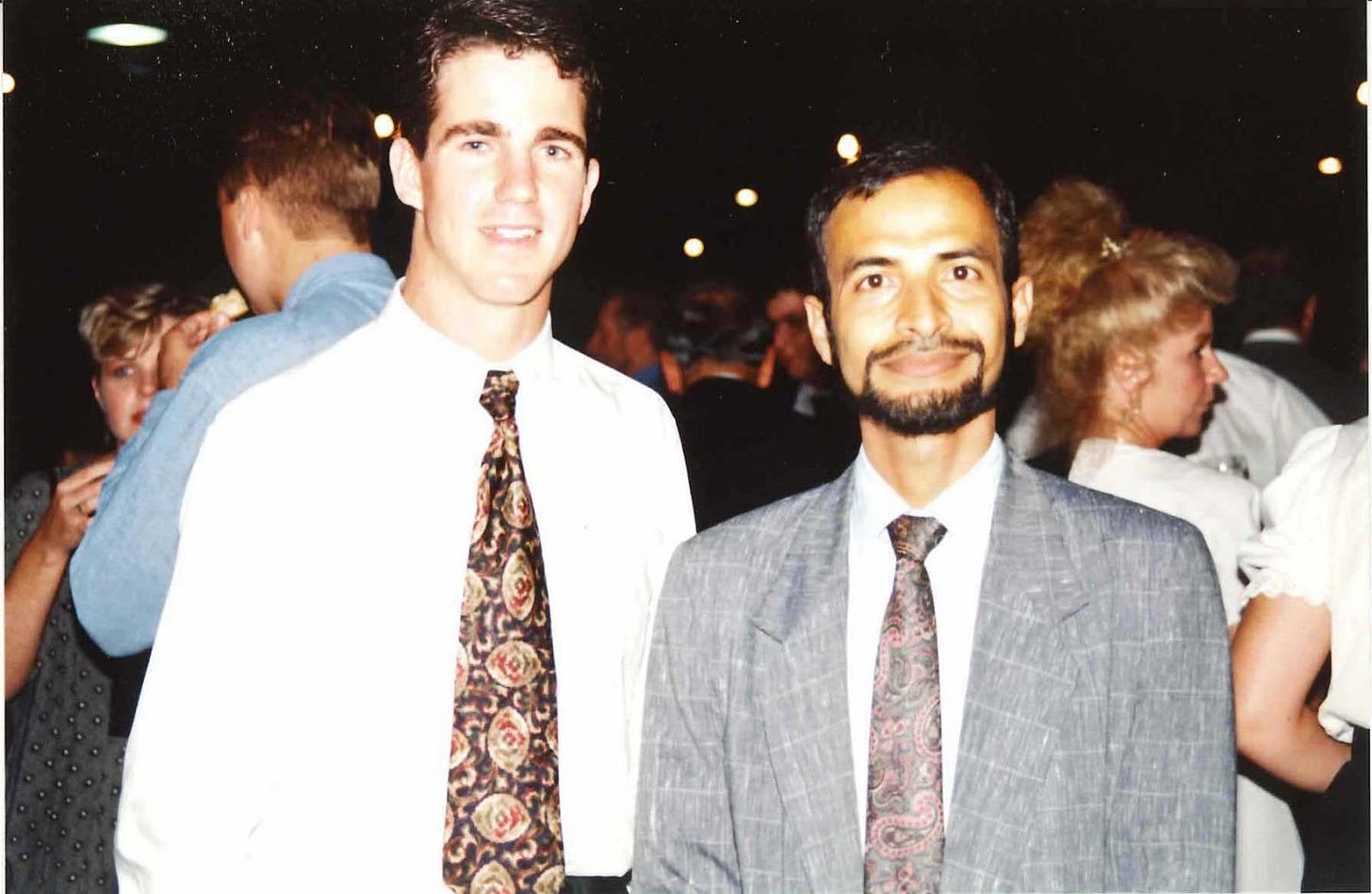After working at the National University of Singapore for several years, I moved to Bond University, Australia.
Why?
They made me an offer I could not resist. I also had offers from Murdoch University (not named after Rupert), University of Melbourne and the Australian National University. But, the pay was 30 percent higher for Bond (the university *was* named after Alan Bond - who funded it - until his business empire collapsed). Plus they made sure I had instant Australian legal residency - not to mention organizing 95 percent of my house mortgage. You would be hard pressed to find any employer anywhere doing something remotely similar - in particular - universities.
It was a brand new university - the first *private* university in Australia. It was an experiment.
I could not resist the temptation of getting into the ground floor of a university designing courses. You don’t get that kind of luxury in established universities. You tinker with a course or two. But designing the entire curriculum was new and exciting.
There were lots of new things we started. For example, all courses had to have a “practical” angle. They all required active student participation - presenting, writing in groups. At the time, it was not common in undergraduate programs in Australia.
Business School students had to learn how to make presentations not just to specialists but to other people from other disciplines. After all, in the workplace, they would have to work and negotiate with people of other backgrounds.
That strategy worked. Bond is now a well-established university.
Starting the Named Prize
Because we had zero tradition, we had zero “named” prizes for good students in the School of Business. This is where I decided that I could contribute something personally. I dreamed up the idea of a “Tapen Sinha Prize” for the best student in Finance. [Such prizes were there in the Law School.] Putting down *my own name* was not for vanity but to encourage *other professors* to follow suit with more prizes in other disciplines.
One student who got such a prize was a kid called Jeremy Faa. I had forgotten about him altogether - until I found a digital photo of him with me in the archives of the National Library of Australia a few months ago.
Executive question: Did my gambit pay off? Did the students benefit from such prizes?
The answer has to be yes.
The reason why I say that is the following. By any standards, Jeremy has done well.
But I was overjoyed to find that even now he mentions *that* prize in his CV.
Proof that it was useful for him.
Executive conclusion: A few hundred dollars did not make me poor or make Jeremy rich. But it must have enhanced his career ever so slightly. I was very happy to be a part of it.
[I taught him a few courses too - probably FINC-301 and FINC-303.]






